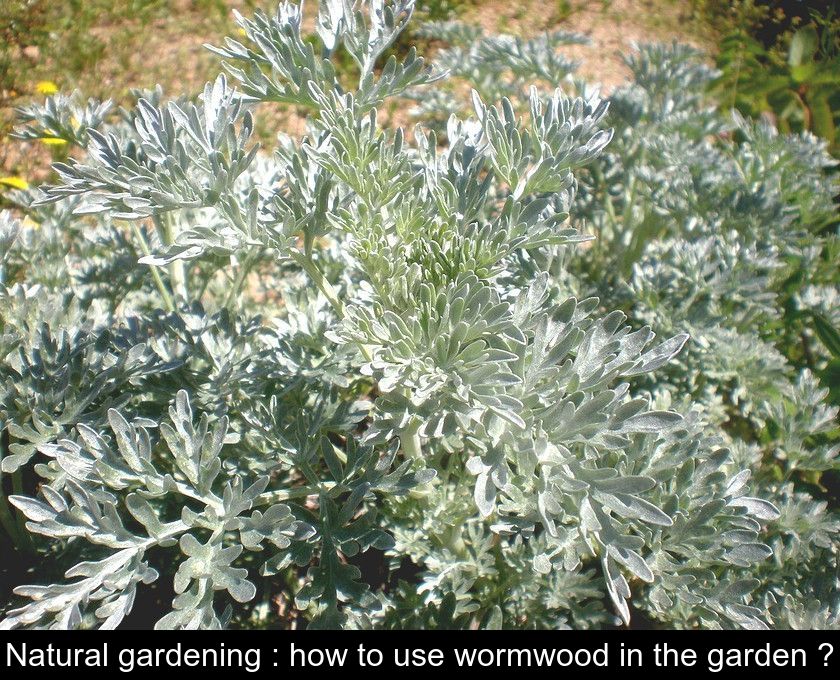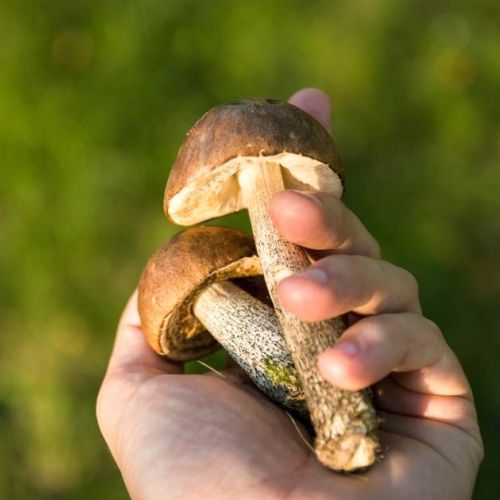Natural Gardening : How To Use Wormwood In The Garden ?
Did you know that wormwood, which is used to make the famous liqueur of the same name, is also a valuable plant for natural gardening enthusiasts? Used in infusion or decoction, it constitutes a natural repellent as well as an excellent remedy with insecticide and fungicide properties.
How to grow wormwood in the garden ?
The absinthe or Artemisia absinthium is a hardy perennial plant in the Asteraceae family. It can be recognized by its silvery, fluffy, sharply cut leaves and yellow bloom in summer.
It is very easy to grow because it accepts all types of soil and any exposure, although in its natural state it grows in rocky soil and sunny places.
Not only is this plant simple to grow and multiplies easily by clump division and cuttings, but it even tends to be invasive as it reseeds itself.
In your vegetable or ornamental garden, it is best to set it aside, as it takes up space and interferes with the growth of other plants. Some vegetables like tomatoes and potatoes but also fennel and basil do not like its company. That's why it's better to plant it at the edge of the vegetable garden rather than in the middle of your vegetable crops.
What are the virtues of wormwood in the garden ?
The first of wormwood's virtues in the garden is that it is an effective repellent for many pests such as insects, mites and even rodents.
This plant has indeed a bitter taste and a strong smell that discourages many undesirables. It is the most bitter plant among the European flora, as the etymology of its name (from the Greek apsinthos 'without sweetness') emphasizes.
While some plants don't like to be planted near it, others will benefit from its proximity. This is especially true of fruit trees, which will be protected from rust disease by the neighborhood of Artemisia absinthium.
Your rose bushes will also appreciate the proximity of this companion plant, which is able to keep aphids and slugs away.
How to use wormwood in infusion or decoction in the garden ?
If you're interested in natural gardening and permaculture, you know that not only can you make plant combinations in the garden, but you can also prepare natural plant-based remedies, such as nettle manure for example...
The Artemisia absinthium is a plant used in permaculture as an infusion and decoction to prevent or treat many diseases.
To prepare a wormwood infusion, you need to:
- bring a liter of water to a boil in a container
- turn off the heat and throw a large handful of wormwood flowers and leaves into the hot water
- cover and let it infuse for at least 24 hours
- filter this infusion before using it
To take advantage of the virtues of this infusion in the garden, simply spray it on the plants without diluting it.
You can spray as a preventive measure or repeat this treatment up to three times a month to treat a heavy invasion of aphids, slugs, flea beetles or cherry fruit flies.
To prepare a wormwood decoction, you must:
- pour one liter of water into a container
- add a large handful of wormwood flowers and leaves
- cover and let it macerate for 24 hours
- bring this mixture to a boil
- boil for about 20 minutes
- let it cool down completely
- filter the decoction before using it
This decoction is useful as a preventive or curative measure against ant invasions and aphid attacks, but also cabbage flea beetles, carrot or cabbage flies and mites on raspberry plants in particular.
Simply spray the decoction on the affected plants without diluting it. You can repeat the operation twice a month if necessary.
Just be sure to avoid spraying this mixture on young plants and not to throw leftover wormwood infusion or decoction into your compost. And of course, always keep your concoctions out of reach of children and pets.








